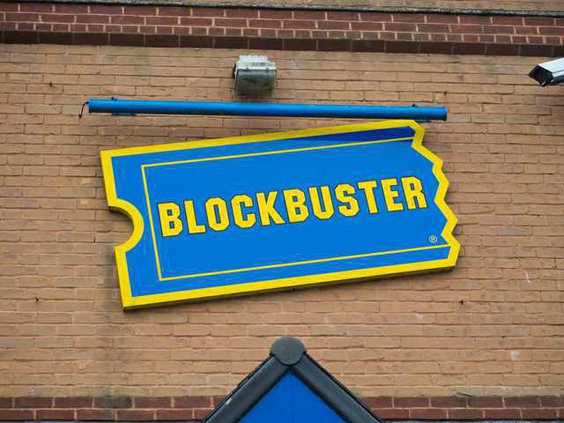Whats it like inside the last Blockbuster store in the country?
Its pretty simple, actually.
As I wrote about last week, two Alaska Blockbuster stores closed their doors, leaving only one store, in Bend, Oregon, as the final Blockbuster in the entire country.
Since then, people have flocked to the video rental location to experience its majesty before it shuts its own doors (if ever).
CBS News visited the Blockbuster in Bend to see if it has done anything different to keep up with the times.
Blockbuster General Manager Sandi Harding told CBS she hasnt changed much with the store. Her store has more than 14,000 titles all lined up in alphabetical order.
"It's all alphabetical so it still comes all the way around in the alphabet to find them," Harding said. "Nothing really has changed. We still have the category signs. I think if a customer walked in here, they would still be like oh, I can find that movie because it's like the library. You go and you kinda know where things are."
Charlotte Jones, a 15-year-old who has grown up during the Netflix era, said she enjoyed the experience of visiting a physical store.
"Just being here is kind of cool because it's the last one," Jones said. "When you see them all, like, next to each other, it kind of makes it easier. But with like on Netflix, you only see the title and that's all. But you have to like scroll through it and it takes a while to get through all of the movies."
Read more at CBS.
The Washington Post also visited the last Blockbuster store in the country.
Harding told The Washington Post that many of her customers are loyalists, while others are walking through the aisles simply for nostalgia's sake.
Others come in for the nostalgic stroll in the aisles, picking feverishly through the inventory to find an obscure film, The Washington Post reported. And snagging the last copy of a new and popular release provides a small thrill you cannot get from a download button.
Its pretty simple, actually.
As I wrote about last week, two Alaska Blockbuster stores closed their doors, leaving only one store, in Bend, Oregon, as the final Blockbuster in the entire country.
Since then, people have flocked to the video rental location to experience its majesty before it shuts its own doors (if ever).
CBS News visited the Blockbuster in Bend to see if it has done anything different to keep up with the times.
Blockbuster General Manager Sandi Harding told CBS she hasnt changed much with the store. Her store has more than 14,000 titles all lined up in alphabetical order.
"It's all alphabetical so it still comes all the way around in the alphabet to find them," Harding said. "Nothing really has changed. We still have the category signs. I think if a customer walked in here, they would still be like oh, I can find that movie because it's like the library. You go and you kinda know where things are."
Charlotte Jones, a 15-year-old who has grown up during the Netflix era, said she enjoyed the experience of visiting a physical store.
"Just being here is kind of cool because it's the last one," Jones said. "When you see them all, like, next to each other, it kind of makes it easier. But with like on Netflix, you only see the title and that's all. But you have to like scroll through it and it takes a while to get through all of the movies."
Read more at CBS.
The Washington Post also visited the last Blockbuster store in the country.
Harding told The Washington Post that many of her customers are loyalists, while others are walking through the aisles simply for nostalgia's sake.
Others come in for the nostalgic stroll in the aisles, picking feverishly through the inventory to find an obscure film, The Washington Post reported. And snagging the last copy of a new and popular release provides a small thrill you cannot get from a download button.








